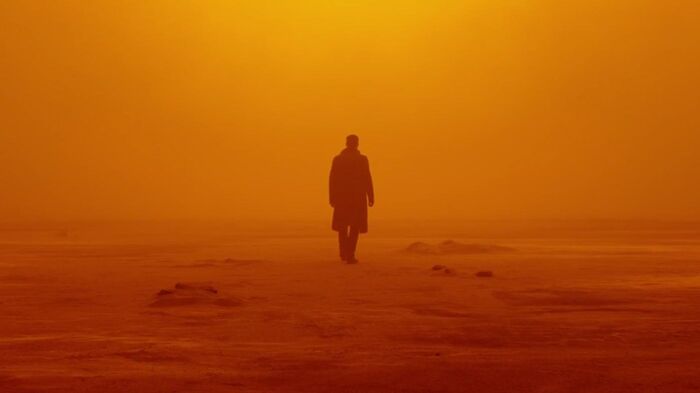Review: Praising The Death of Stalin
A raucous break from her historical studies, Lillian Crawford finds Armando Iannucci’s latest endeavour startlingly thought-provoking

When one considers historical periods that might inspire comedy, the totalitarian dictatorships of the twentieth-century do not immediately spring to mind. Then again, neither would the dealings of the Department of Social Affairs or local radio in Norwich, but somehow Armando Iannucci has made a name for himself in these subjects as something of a comedic genius. It might also be deemed bold of the writer-director to take his trademark political incorrectness out of the BBC and into the film studio; thankfully, this is not a quality of which Iannucci seems to be deficient.
“The message allows it to transcend its debauched toilet humour”
The Death of Stalin opens with red, and silence. The following 107-minutes barely pause for breath in what can only be described as a torrent of side-splitting satirical farce. Yet there is an awkwardness to films that begin this way, with audiences not knowing whether to continue their menial mutterings or start paying attention. No one dares move for fear of disrupting others, unknowing of when proceedings will commence. Into a Soviet concert hall, overseen by a fretful Paddy Considine; the airs of Mozart pour into the auditorium. We begin with literal orchestration, and continue to follow the conductors, puppet-masters, and musicians throughout. Suppose something so carefully micro-managed was to collapse, its composer dead. ‘Chaos instead of music’ will inevitably ensue.
The more culturally aware will have recognised that allusion to Pravda’s condemnation of Shostakovich’s Lady Macbeth of the Mtsensk District in 1936, and as much as the reviewer is cognisant of their audience, so too is Iannucci. Soviet historians delight, for the film is smattered with such indulgent witticisms, including Nijinsky-esque corpse-lifting and Malenkov’s beauty rituals. For those who have spent hours flitting through historiographical doorstoppers, watching Khrushchev run about in his pyjamas and Zhukov curse with a Yorkshire accent is a dose of comic relief so desperately needed in all its absurd incongruity.
Naturally, were the film to be accessible only to those who have read extensively of the days following Stalin’s demise, it would most likely fail miserably at the box office. Typically, the historical genre aims to educate mass audiences on overlooked lives with grotesque gratuity, and this is certainly not the case with The Death of Stalin. Beria, of course, is well known to have allegedly kissed Stalin, although may have participated in less chest-bumping than displayed (then again, who knows what went down in the corridors of power?). It is certainly the latter in which Iannucci finds a wider appeal, and the surprisingly welcome physical comedy drives much of the laughter.
Unlike Iannucci’s sit-coms, there is undoubtedly a cinematic quality to the film – Spielberg could just as easily use the set-pieces for a second commie-bashing follow-up to Bridge of Spies. Most impressive is Stalin’s elaborate funeral, and Christopher Willis’s stirring score elevates it to rousing heights. So convincing are the quasi-Shostakovich themes in his debut film soundtrack that one might be fooled into believing the great composer had written it himself (well, almost). Replicating but shifting reality onscreen as in life assert deception and historical subjectivity as the film’s major themes, and as the credits roll alongside censored photographs, the message allows it to transcend its debauched toilet humour.
It is a rare feat for a director to make an audience laugh to the point of crying. It is even scarcer for them to do so before delivering a breath-taking punch to the gut, turning those tears from hilarity to sorrow. None of the ensemble are more capable of this than Simon Russell Beale, who portrays Beria with remarkable sensitivity, and whose unrivalled dramatic talents find as welcome a place onscreen as onstage. In light of current Hollywood scandal, his harrowing abuse of power breaks down the wall of distance the audience has from the past, and the modern parallels swell in the foreground. With its smile-swiping finale, The Death of Stalin moves beyond even the historical comedies of Monty Python. Just remember to keep applauding once it is over
 Fashion / Why did we stop wearing heels? 7 November 2024
Fashion / Why did we stop wearing heels? 7 November 2024 Music / Cambridge libraries as hit songs13 November 2024
Music / Cambridge libraries as hit songs13 November 2024 Features / Challenging tradition and dressing down in Cambridge5 November 2024
Features / Challenging tradition and dressing down in Cambridge5 November 2024 Film & TV / Compulsive heterosexuality: Heartstopper Season 313 November 2024
Film & TV / Compulsive heterosexuality: Heartstopper Season 313 November 2024 News / News in brief: royal visits and rabid waters12 November 2024
News / News in brief: royal visits and rabid waters12 November 2024






